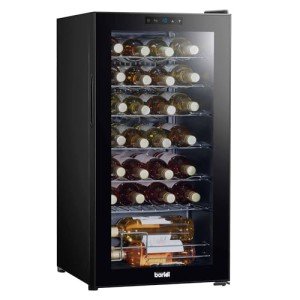Fridges Tools To Help You Manage Your Everyday Life

The Comprehensive Guide to Refrigerators: Types, Features, and Maintenance
Fridges , typically referred to as fridges, play a critical function in modern-day homes by preserving food, reducing waste, and keeping a comfy living environment. These important cooking area devices have actually progressed considerably for many years in regards to innovation, performance, and style. This article intends to provide a comprehensive summary of the different kinds of refrigerators, their features, and pointers for maintenance, making it an important resource for homeowners.
Types of Refrigerators
Refrigerators are available in numerous styles and configurations, each dealing with different requirements and preferences. Below is an introduction of the most typical types of refrigerators available on the marketplace today.
| Type of Refrigerator | Description |
|---|---|
| Top-Freezer | This is the classic fridge design where the freezer compartment is located on top. It is typically the most affordable alternative, making it popular for budget-conscious customers. |
| Bottom-Freezer | In this design, the freezer is positioned at the bottom, allowing simple access to fresh items at eye level. This type typically includes pull-out drawers for simpler company. |
| Side-by-Side | This design has the freezer and refrigerator compartments organized vertically next to each other. It supplies simple access to both sections and typically features water and ice dispensers. |
| French Door | Integrating the advantages of a bottom-freezer style with broad doors on the refrigerator section, French door fridges provide sufficient area and versatility, making them ideal for large families. |
| Compact | Also understood as mini-fridges, these smaller systems are perfect for dormitory rooms, workplaces, or as secondary refrigerators in homes. They have actually restricted storage but are energy-efficient. |
| Smart Refrigerators | Geared up with clever technology, these fridges offer features such as touch screens, web connection, and app controls. They can supply alerts for ended food and other wise performances. |
Secret Features to Consider
When choosing a refrigerator, it is important to think about different features that can improve use and efficiency. Here are some crucial functions to look for:
Energy Efficiency
- Try to find models with an Energy Star score to make sure energy effectiveness and minimized utility expenses.
Storage Options
- Adjustable shelves, door bins, and specific compartments for vegetables and fruits boost the flexibility of storage.
Water and Ice Dispensers
- Many side-by-side and French door models include built-in water and ice dispensers, offering convenience and motivating hydration.
Temperature Control
- Exact temperature level control enables property owners to set ideal conditions for various food items.
Smart Features
- Features like touchscreen interfaces, Wi-Fi connection, and integrated electronic cameras to help manage grocery stocks make clever fridges appealing.
Noise Levels
- Consider models with low functional sound, especially if the kitchen is open to the living location.
Maintenance Tips for Refrigerators
Correct upkeep can extend the life of a refrigerator and make sure optimal performance. Here are some useful maintenance suggestions:
Regular Cleaning:
- Clean the exterior and interior surfaces of the fridge with mild soap and water a minimum of when a month.
- Get rid of spills instantly to prevent smells and germs growth.
Temperature level Settings:
- Maintain your refrigerator at a temperature in between 35 ° F to 38 ° F and the freezer at 0 ° F for optimum food conservation.
Inspect Door Seals:
- Inspect the door seals regularly for cracks or tears. A faulty seal can result in energy loss and increased electrical energy expenses.
Defrost Regularly:
- For manual defrost designs, thaw the freezer when ice develops up to lower the home appliance's work.
Condenser Coils:
- Clean the condenser coils at the back or underneath the refrigerator every 6 months to enhance effectiveness.
Keep it Level:
- Ensure the refrigerator is level for proper door alignment and to avoid vibrations.
Frequently Asked Questions (FAQs)
1. The length of time should a refrigerator last?Usually, a refrigerator can last anywhere from 10 to 20 years, depending on the brand name and maintenance practices.
2. How can I improve the energy performance of my refrigerator?To enhance energy efficiency, keep the fridge's temperature level settings optimum, frequently tidy the condenser coils, and avoid putting hot food within.
3. What type of refrigerator is best for little cooking areas?Compact or counter-depth models are ideal for small kitchens as they offer sufficient storage without occupying excessive area.
4. Are clever fridges worth the investment?Smart refrigerators can be worth the investment if you value benefit and innovation. They offer performances like inventory management and remote access, which cater to tech-savvy users.
5. How can I troubleshoot a refrigerator that is not cooling properly?Start by inspecting the temperature level settings, ensuring the condenser coils are tidy, and confirming that the door seals are undamaged. If these do not solve the problem, think about calling a professional service technician.
In conclusion, refrigerators are important appliances that play an important role in maintaining food and preserving a healthy lifestyle. With a range of types and features readily available, it is important for customers to pick a model that lines up with their specific needs. By understanding the options and sticking to maintenance best practices, property owners can enjoy the advantages of their refrigerators for several years to come.

